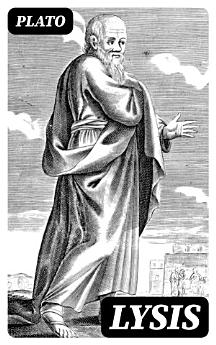關於這本電子書
In "Lysis," Plato delves into the intricacies of friendship and love through a Socratic dialogue that unfolds in a philosophical and thought-provoking manner. Set in the Athenian context of the 4th century BCE, the dialogue examines the nature and definition of philia (friendship), challenging the superficial understandings of human relationships. Through interactions among Socrates, Lysis, and Menexenus, Plato employs a dialectical method that invites critical reflection on the motivations that underpin personal connections, ultimately leading to an exploration of the concept of self-knowledge and identity within social bonds. Plato, an eminent philosopher and student of Socrates, was profoundly influenced by the sociopolitical dynamics of his time, including the aftermath of the Peloponnesian War. His exploration of ethical themes in "Lysis" reveals his commitment to understanding the human condition and the moral implications of relationships. This work is emblematic of his broader philosophical inquiries into the nature of reality, ethics, and the pursuit of the good life, showcasing how personal relationships reflect larger societal issues. "Lysis" is a must-read for lovers of philosophy, ethics, and classical literature, offering timeless insights into the meaning of friendship that resonate across cultures and eras. Readers will appreciate Plato's rich prose and the depth of inquiry that challenges us to reconsider our own relationships and the virtues that underpin them.
關於作者
Plato (c. 428/427 – c. 348/347 BCE) was an Athenian philosopher during the Classical period in Ancient Greece, founder of the Platonist school of thought and the Academy, the first institution of higher learning in the Western world. As a student of Socrates and later a teacher of Aristotle, Plato's philosophic contributions lay the foundation for Western metaphysics, epistemology, and ethics. His dialogues have been used to teach a range of subjects, including philosophy, logic, rhetoric, and mathematics. 'Lysis' is one such dialogue, exploring the nature of friendship and affection. Plato's literary style is characterized by the dialectic form, engaging readers in intricate philosophical debates through carefully crafted characters and narratives. His work often addressed the juxtaposition between the ideal and the real, culminating in his theory of Forms – abstract, perfect, unchangeable concepts or ideals that transcended time and space. Plato's dialogues not only serve as crucial philosophical texts but also as literary masterpieces, presenting complex ideas through Socratic dialogues that remain influential. Alongside 'Lysis,' his other renowned works include 'The Republic,' 'Phaedo,' 'Timaeus,' and 'Symposium,' each contributing to his reputation as a cornerstone of philosophical thought and literary expression in the Western tradition.
為這本電子書評分
請分享你的寶貴意見。
閱讀資訊
智能手機和平板電腦
手提電腦和電腦
你可以使用電腦的網絡瀏覽器聆聽在 Google Play 上購買的有聲書。
電子書閱讀器及其他裝置
如要在 Kobo 等電子墨水裝置上閱覽書籍,你需要下載檔案並傳輸到你的裝置。請按照說明中心的詳細指示,將檔案傳輸到支援的電子書閱讀器。








